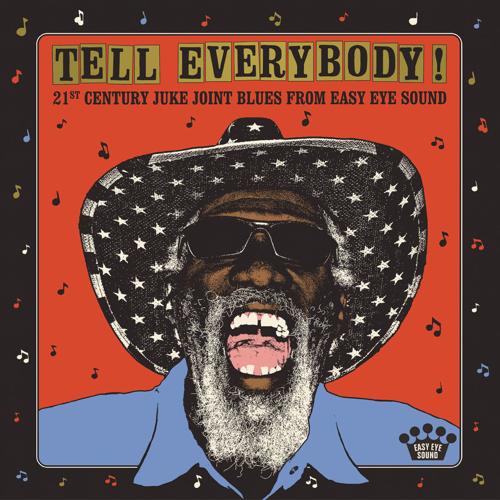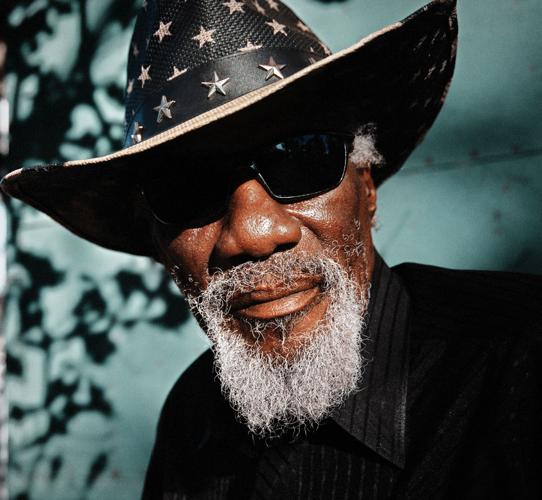
It would be inaccurate and a gross oversimplification to say Dan Auerbach’s outstanding Easy Eye Sound label and studio specializes in blues or Americana music. Auerbach opened his studio on Eighth Avenue South in Nashville not long after he and Patrick Carney, his bandmate in Grammy-winning dynamic blues-rock duo The Black Keys, moved here from Ohio in 2010. Both Auerbach and Carney produce records for other artists. Auerbach launched the Easy Eye label, an imprint of Concord Music Group, in 2017, and he helms the combined Easy Eye enterprise. Both label and studio serve as yet another reminder of the sprawling idiomatic diversity that characterizes so much great American music, while reinforcing some shared traits that epitomize both the studio’s production sound and the imprint’s releases.
“[Artists say] that the way we make records here reminds them of how they used to make records with [legendary Memphis production maven] Chips Moman,” Auerbach told NPR’s Jewly Hight in a 2019 interview for World Cafe. “Sometimes you think you’re hearing something that reminds you of [landmark recordings] but you’re actually hearing the people that made those sounds.”

Dan Auerbach performing with The Black Keys, Pilgrimage Music Festival 2021
Put another way, Easy Eye Sound extends the formula that the Keys perfected. Across the Easy Eye catalog, Auerbach and the artists he works with utilize the sensibility of blues, rock, country or any genre they choose, while carefully nurturing and showcasing each musician’s individual stylistic flair and flamboyance. The sound is uniformly rich and organic, but always tailored to serve the needs of the artist and the song. Across more than 20 acclaimed releases from artists like soulful songsmith Yola, blues wizard Jimmy “Duck” Holmes and West Coast rockers Shannon and the Clams — as well as a tribute to country great John Anderson — this approach has yielded 11 Grammy nominations. Even more importantly, it’s made the releases truly special, and the superb forthcoming anthology Tell Everybody! 21st Century Juke Joint Blues From Easy Eye Sound continues the trend.
The roster blends the weathered vocals of old-timers with the spry, in-your-face mode of youthful types with one foot steeped in rock distortion and the other in world-weary blues sophistication. Some of the tunes ooze the intimate, close community feel that is the essence of the juke joint experience, while others are more flashy and offer an edgier perspective. But they all adeptly handle the balancing act between traditional and contemporary modes that every 21st century blues performer or group must master. Auerbach instinctively knows as a producer when to lay back and when to add some spice to the mix.

R.L. Boyce
The LP was recorded over several years, and its title track is by Louisiana’s Robert Finley, who has released two albums via Easy Eye. Its crackling vocal refrain is ably supported by guitarist Kenny Brown and bassist Eric Deaton, both longtime celebrated Mississippi blues masters who recorded with the Keys on Delta Kream, their 2021 tribute to R.L. Burnside and Junior Kimbrough. Another of Tell Everbody!’s finest homages to the past comes from Mississippian R.L. Boyce’s anthemic version of “Coal Black Mattie.” It’s a signature tune not only for Boyce, but was for the mighty Burnside, arguably the greatest performer of updated Hill Country blues. Finley’s version doesn’t merely guide the listener through the lyrics — it makes the subject resonate to the point you think you’ve seen someone like her recently.
Perhaps the record’s most poignant moments come in the moving vocals of revered Cleveland, Ohio, rocker and early Black Keys inspiration Glenn Schwartz, who died in 2018. Like Little Richard and Jerry Lee Lewis, Schwartz wrestled with the issue of whether he should sing for spiritual or secular salvation; he spent several years in the All Saved Freak Band, which was connected to the Church of the Risen Christ, a religious organization that became a cult. The two tracks featured on Tell Everybody! offer examples of each. A new version of “Daughter of Zion” matches him with longtime musical comrade Joe Walsh — who took over as guitarist in the James Gang when Schwartz left — and powers down the gospel-rock road. His original “Collinwood Fire” is an archetypal blues recounting of a tragedy, telling the story of the 1908 fire at Lakeview School in Cleveland that killed 172 schoolchildren.
There’s really not a throwaway cut — just a question of personal taste and preference. For me, hearing Holmes and the late Leo “Bud” Welch doing versions of “Catfish Blues” and “Don’t Let the Devil Ride” (presented here in previously unissued mono mixes) is a special treat. Holmes may not have the sheer vocal majesty Muddy Waters brought to his version, but he knows how to make the lyrics memorable. Welch for whatever reason never acquired the reputation among the singing preacher/gospel blues crew he should have enjoyed. His “Don’t Let the Devil Ride” is every bit as delightful in its pace and stern in its message as anything the Rev. Gary Davis or the Rev. Robert Wilkins might have done in their prime.

Robert Finley
While I’m not as enamored with some of the contemporary blues material, it is interesting to hear both Nat Myers (a Kentucky-residing Korean American songsmith whose own Yellow Peril was also recently released via Easy Eye) and Gabe Carter offering fresh takes on the vintage “Bentonia school” style. Though I’m pretty sure Skip James wouldn’t have sung it that way, it is interesting to hear Carter’s almost Auerbach-esque vocal on “Buffalo Road.” There’s also a fresh Black Keys single, “No Lovin’,” and Auerbach steps out solo on “Every Chance I Get (I Want You in the Flesh),” which is sassy and groovy.
With the way the production is built around the artists, no one should be surprised that in Music City, Easy Eye Sound is recording and releasing blues material every bit as splendid, gritty — and yes, authentic — as anything coming out of Chicago or Mississippi.











